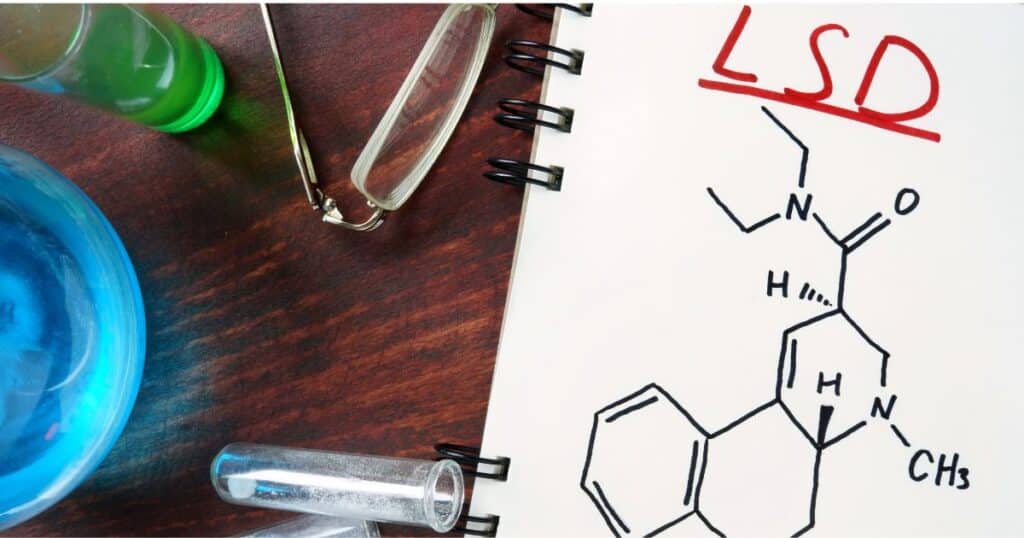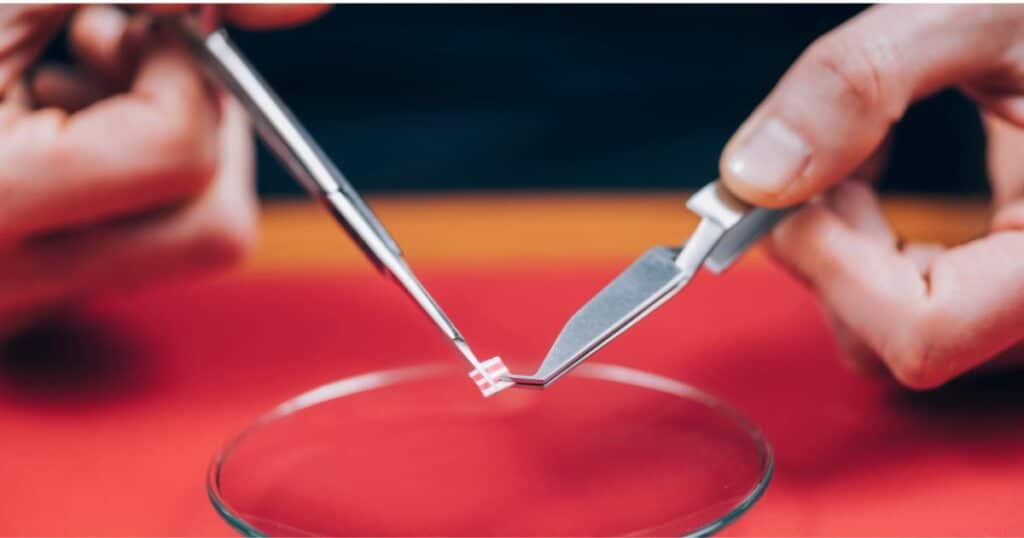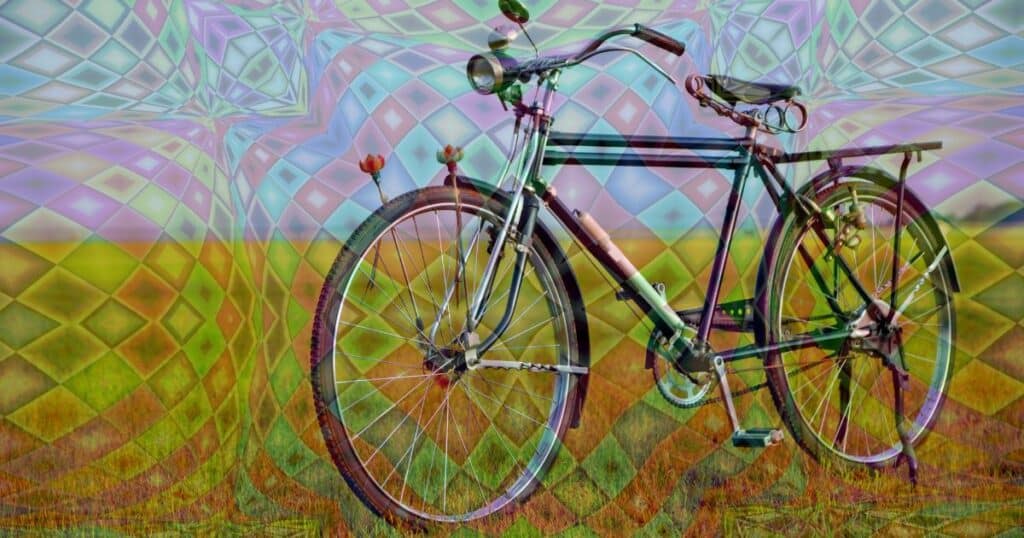On April 19th, 1943, the world took a turn without realizing it, and it all began with a fateful bike ride. This day marked the first intentional dosing of LSD by Swiss chemist Albert Hofmann, a pioneering event that introduced humanity to the wonders of psychedelics.
The significance of this day, now celebrated as Bicycle Day, extends beyond mere recreation—it’s a tribute to a discovery that reshaped our understanding of the human mind and continues to inspire untold personal and scientific journeys.

Adventures of a Chemist on Wheels
The tale begins in the laboratories of Sandoz pharmaceutical company where Hofmann, tasked with synthesizing a compound from the rye fungus ergot, stumbled upon the 25th variant — LSD-25. What was initially considered a failed experiment eventually led to Hofmann’s accidental exposure to the compound that lay dormant since its creation in 1938.
On April 16th, 1943, while re-examining the properties of LSD-25, Hofmann, in a curious twist of fate, absorbed a small amount through his fingertips. The result was nothing short of extraordinary—an “intoxicated-like condition” with kaleidoscopic visuals and an “extremely stimulated imagination,” as vividly described in his memoir.
Unfazed by the unusual turn of events, Hofmann, on April 19th, ingested what he believed to be a safe dosage of LSD—0.25 milligrams—following proper scientific procedure. Within an hour, the world of objective reality began to dissolve, and the legendary bicycle ride commenced.
With his assistant and bicycle to support him, Hofmann ventured into a realm. Here, “the ladybird in his chest pocket spoke in a loud and clear voice.” His perceptions distorted so much that “his ego was suspended in a timeless space.” The streets of Basel, Switzerland, became a place of revelation and terror. Hofmann became the first modern psychonaut to experience a planned LSD trip.
LSD’s Impact and Legality
Hofmann’s experience that day wasn’t merely a personal odyssey. It unveiled the profound psychoactive potential of LSD. This shifted its purpose from a mere laboratory curiosity to a tool for psychiatric research. He recognized its ability to catalyze “a shift in consciousness.” Envisioning a future, he saw it assisting in treating a myriad of mental health disorders.
Sandoz manufactured LSD for research use, and throughout the 50s and 60s, the compound showed immense potential in treating psychiatric cases, much like Hofmann had foreseen. Moreover, it was prescribed by clinicians worldwide for conditions such as addiction and personality disorders, with promising results.
The ’60s witnessed a tidal wave of LSD consumption among the counterculture. This led to a wider recognition of its consciousness-altering capabilities.
Unfortunately, its popularity gave way to a swift and stringent response from the authorities. In 1968, LSD was classified as a Schedule I substance, effectively curtailing all legal and medicinal applications.
Celebrating Bicycle Day Today
Slowly but surely, the tide is gradually turning once again. The stigma associated with LSD is giving way to a newfound curiosity fueled by its potential therapeutic effects. Recent studies have explored its efficacy in treating PTSD, depression, and anxiety. This indicates that Hofmann’s vision of LSD as a psychiatric panacea might not have been in vain.
In the contemporary world of psychedelia, Bicycle Day is a celebration that transcends the psychedelic community. It stands as a testament to the human spirit of exploration, innovation, and the relentless pursuit of knowledge. Festivals, art shows, and educational events dedicated to the occasion reflect the broadening acceptance of psychedelics and the cultural impact of their discovery.

The legacy of Bicycle Day goes beyond a simple historical note. It symbolizes the continuous journey to understand the mind and human experience. As we approach a new chapter in the exploration of psychedelics, these substances hold potential for healing and self-discovery.
Albert Hofmann’s bicycle ride reminds us that history’s most impactful moments can happen unexpectedly, akin to a regular commute. As humanity stands at the dawn of new understanding, we can hope to use the lessons of the past. Present discoveries pave the way for a brighter future. Wishing all modern explorers a thoughtful Bicycle Day—the journey ahead is full of promise.






















